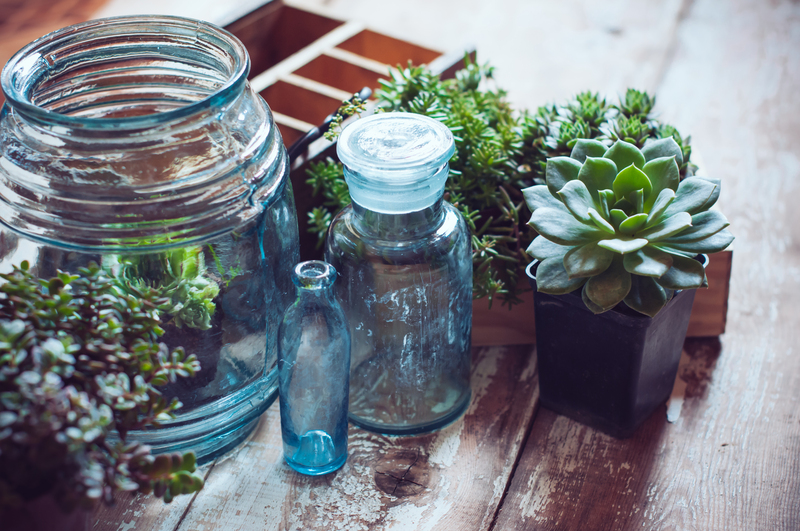Clearing Clutter: Recycling Your Kitchen Pans
If you find yourself with a stack of old or damaged kitchen pans cluttering your cabinets, you're not alone. Many households accumulate worn-out cookware but are unsure how to dispose of it responsibly. Recycling kitchen pans is an excellent way to clear the clutter and contribute to a more sustainable future. In this comprehensive guide, we'll cover everything you need to know about responsibly recycling your old pans, the benefits of doing so, where and how to recycle them, and alternative ideas if recycling isn't an option.
Why Should You Recycle Old Kitchen Pans?
Why not just throw your old pans in the trash? It might seem easier, but there are several important reasons to recycle kitchen cookware:
- Environmental Preservation: Most kitchen pans are made from metals like aluminum or stainless steel that take hundreds of years to break down in landfills.
- Resource Conservation: Metals are valuable, finite resources that can be reused when properly recycled.
- Reducing Clutter: Clearing out unwanted pots and pans can free up valuable storage space in your kitchen.
- Supporting the Circular Economy: When you recycle cookware, you ensure materials are reintroduced into manufacturing cycles--reducing the need for virgin resources.
By recycling kitchen pans, you're not only tidying your space but also promoting environmental sustainability.

What Materials Can Be Recycled?
Understanding the materials in your pans is crucial. Most kitchen pans suitable for recycling are made from:
- Aluminum
- Stainless steel
- Copper
- *Cast iron*
Pans with non-stick coatings, such as Teflon, and those with plastic, glass, or wooden handles may require special attention.
Can All Pans Be Recycled?
Not all cookware is recyclable the same way. Local recycling programs might not accept pans with non-stick coatings or those containing a mixture of materials. Before you recycle, check with the program to see which types they accept.
Tip: If you are unsure about your pan's material or recycling rules in your area, contact your municipal waste management office for clarification.
How to Prepare Pans for Recycling
Properly preparing your cookware is essential for successful recycling. Here's how you can get started:
- Remove Non-Metal Parts: Detach plastic, glass, or wooden handles if possible. Metal recyclers and processing centers usually require that pans are free of non-metal components.
- Scrub Away Food Residue: Ensure the pan is clean. While slight staining is common in used pans, any significant food debris should be removed.
- Sorting: Separate pans by material if you are bringing them to a scrap metal recycler. This helps with processing and might even get you a better recycling rate.
This step not only makes recycling more efficient but also reduces contamination risks in recycling machinery.
Where Can You Recycle Kitchen Pans?
Depending on where you live, there are multiple options for recycling old kitchen pans:
- Scrap Metal Yards: Most scrap metal recycling facilities accept pots and pans. Contact your local recycler for specific guidelines.
- Municipal Recycling Centers: Some communities accept metal cookware in their curbside recycling bins or at local drop-off centers. Check your city's website for details.
- Donation Centers: If your pans are still usable, consider donating them to local shelters, community kitchens, or thrift stores.
- Special Recycling Programs: Certain brands and stores--like TerraCycle or some cookware companies--offer take-back programs for old pans.
Not all centers accept non-stick pans due to their Teflon coatings, so always call ahead.
How to Find a Scrap Metal Recycler
To locate a scrap metal recycling center:
- Search online for "metal recycling near me."
- Check with your local municipal waste authority.
- Ask at hardware stores, as some accept worn-out pans for recycling.
Alternative Options: Upcycling, Donating & Reusing
If recycling isn't available in your area, consider creative ways to repurpose your kitchen pans:
Creative Upcycling Ideas
- Use old pans as planters for your garden or patio.
- Turn small pans into quirky wall clocks or kitchen decor.
- Create unique serving trays from large pans.
- Use cast-iron skillets as weights for press sandwiches or tofu.
Not only does upcycling keep cookware out of landfills, it also adds a personalized, rustic touch to your decor.
Donation and Reuse
If the pans are still in workable condition:
- Donate to local shelters, schools, or food banks.
- Post them on community sharing apps or marketplaces like Freecycle or Facebook Marketplace.
- Gift to someone setting up a new home.
Donating usable kitchen pans is a sustainable way to extend the life of your cookware while helping others.
The Importance of Responsible Disposal
Why does responsible cookware disposal matter? Here are key reasons:
- Reduces landfill waste: Every year, tons of metal waste end up in landfills. Recycling pans can significantly cut back on this waste.
- Prevents hazardous material contamination: Some non-stick pans, if not properly discarded, can release harmful chemicals.
- Saves natural resources: Recycling metals is far less resource-intensive than mining new ones.
Being mindful about how you clear kitchen clutter can have a major positive impact on the environment.
Common Questions About Recycling Kitchen Pans
Can I Put Pans in My Curbside Recycling Bin?
It depends on your local recycling program. Many curbside collections do not accept kitchen pans due to their size and material, but some cities allow you to bring them to a special recycling location. Always check your local guidelines.
What Should I Do With Non-Stick Cookware?
Non-stick pans pose a unique challenge because of the chemical coating. Many recycling centers only accept uncoated metal pans. If your pan has a non-stick coating:
- Contact your local waste management facility for advice.
- Look for manufacturer take-back programs.
- If those aren't available, consider creative upcycling ideas instead of landfill disposal.
Are There Cookware Brands That Offer Recycling Programs?
Yes! Some cookware manufacturers and retailers have recognized the need to recycle and have implemented take-back or recycling programs. Some notable examples include:
- TerraCycle: Offers a Cookware Recycling Program for specific brands.
- Calphalon: Has a Recycling Program through certain stores.
- Local Kitchenware Stores: Occasionally host recycling drives for pans and pots.
Check your pan's brand website or the store where you purchased it for recycling program information.

Tips for Avoiding Excess Cookware Clutter
- Buy versatile, high-quality pans that can serve multiple purposes.
- Maintain your cookware to extend its life--regularly season cast iron and avoid overheating non-stick finishes.
- Donate or recycle old pans as soon as they are no longer needed.
- Regularly review your kitchen inventory and clear out duplicates or damaged items.
Conclusion: Make Kitchen Pan Recycling a Priority
Clearing clutter by recycling your kitchen pans isn't just about having a tidier kitchen--it's part of a larger, sustainable lifestyle. Recycling or reusing old pans helps preserve natural resources, reduces landfill waste, and supports a healthier environment.
Take action today:
- Sort through your kitchen cabinets and identify pans ready to be recycled, reused, or donated.
- Research local recycling guidelines and drop-off locations.
- Explore creative ways to upcycle unusable pans into household treasures.
The next time your cookware sees the end of its culinary career, give it a responsible send-off and make kitchen pan recycling a priority. Your future clutter-free kitchen--and the planet--will thank you for it.